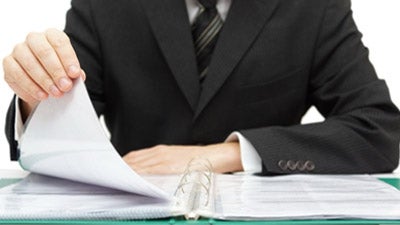
The S-corporation is the most popular tax entity in the United States and the number of S-corps is increasing faster than any other type of entity. A for-profit, state-chartered corporation may elect S Corp status. Additionally, one option available to an LLC is the ability to elect to be taxed as an S-corp. Note that an LLC that elects this status is not a corporation and will not be treated as a corporation other than for tax purposes.
The increasing number of S-corps can be attributed to at least two major factors. First, the attributes of an S-corporation are attractive to entrepreneurs. Major advantages are that losses can be passed on to the shareholders and deducted on their individual returns. The S-corp provides limited liability protection and it is easier to raise capital as a corporation. Additionally, S-corp earnings are not subject to self-employment taxes, although this exclusion is under siege.
The second factor is that more small businesses are being formed today. Much of this is due to high unemployment. A second reason is that, with the technology available today, operating a small business has become more feasible for many entrepreneurs.
On the negative side, the S-corp is one of the most complicated tax entities in the United States. Unfortunately, many of those operating S-corps fail to adhere to the rules and regulations relating to the business. This can have disastrous consequences, as the courts could disregard the corporate entity, exposing the owners to unlimited liability. In addition, the IRS, could characterize the profits as self-employment income, creating a large tax liability for self-employment tax for the owners.
An S-corp is a creature of the IRS. A state corporate charter does not specify that the organization is an S-corp. In order to be considered an S-corp, after receiving the state corporate charter, the shareholders must apply to the IRS for S-corp status. This must be done by filing Form 2553 by the 15th day of the third month of the tax year. The application must be signed on the front by an officer of the corporation who is designated in the corporate minutes with the authority to do so. All shareholders must sign on page two, indicating their consent to the election, including their ownership stake, social security numbers, and other information.
If the election is not made on a timely basis, Revenue Procedure 2007-62 describes the circumstances under which a late election may be remedied, and the process for correcting the late filing. Basically the IRS will remedy a late election if “reasonable cause for filing a timely Form 2553” can be shown.
There are several requirements for S-corp status:
- First, the corporation must be a domestic corporation or domestic entity eligible for S-corp status. This simply means that the corporate charter or other official organizing document was issued in the United States.
- Secondly, there can be no more than 100 shareholders. However, husband and wife or members of a family may be counted as one shareholder.
- Third, shareholders must be individuals, estates, exempt organizations, or certain trusts.
- Fourth, non-resident aliens cannot be shareholders in an S-corp.
- Fifth, the corporation can have only one class of stock. If the differences in two classes of stock only pertain to voting rights, the IRS considers the organization to have only one class of stock.
- Sixth, the organization cannot be a financial institution, insurance company, or domestic international sales corporation.
- Finally, the corporation must adopt a calendar year, natural business year, or other approved fiscal year.
This article has been an overview of the S-corporation and the requirements for becoming an IRS-approved S-corporation. Future articles will discuss the pitfalls facing the operation of an S-corporation and the rules that must be followed to avoid unintended consequences.
This article was originally published by TaxConnections
Author: Dr. John Stancil (My Bald CPA) is the recently retired Professor of Accounting and Tax at Florida Southern College in Lakeland, FL. He is a CPA, CMA, and CFM and passed all exams on the first attempt. He holds a DBA from the University of Memphis and the MBA from the University of Georgia. He has maintained a CPA practice since 1979 with an emphasis in taxation. His areas of expertise include church and clergy tax issues and the foreign earned income credit. He prepares all types of returns, individual and business.
Published: July 18, 2014
2508 Views
2508 Views












